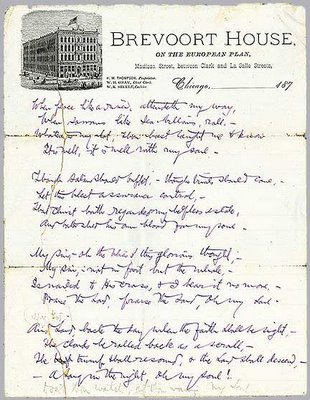
The worship workshop will take place tomorrow evening and thankfully, I am already tying up loose ends in my preparation of materials and slides.
Daniel I. Block’s article on the “The Joy of Worship: The Mosaic Invitation of the Presence of God (Deut 12:1-14),” has been most helpful. One of his points really impressed upon me about the God that we worship, though I did find that he was not very clear in his delivery sometimes.
- The pagans’ motivation of worship is for physical prosperity and numerous progeny. In contrast, Deuteronomy 12 provides an exciting series of reasons why future generations should be motivated to worship Yahweh. Whereas Moses had repeatedly grounded Israel’s ethical conduct in God’s past actions of deliverance, covenant, revelation and providential care (Deut 4), here he highlighted the Lord’s future actions on the nation’s behalf as the grounds for worship:
1. He would give them the land promised to their ancestors (vv. 1, 10)
2. He would bless the Israelites in all their economic activities (v. 7)
3. He would give them rest (v. 9)
4. He would give Israel the land of Canaan as a special grant (v. 9)
5. He would provide security for them (v. 10)
By reminding the Israelites of these gracious actions Moses illustrated the fundamentals character of true worship: reverential human acts of submission and homage before the divine Sovereign, in response to His gracious revelation of Himself in accord with His will. Worship involves a glorious celebration of privilege and relationship, rather than fright and manipulation.
When I first read that, I could not see the difference between the two. But it soon became clear to me the difference. That is, when we worship, it is not worship in expectant of something in return but the worship of the Almighty God who has already promised many good things to the faithful.
Maeghan
Picture by Martin Walls









































